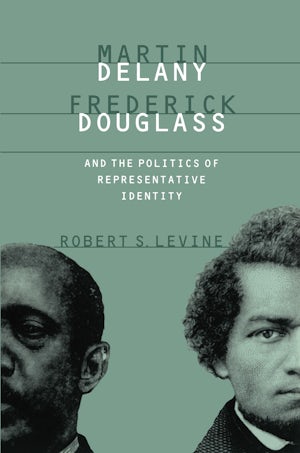Martin Delany, Frederick Douglass, and the Politics of Representative Identity
By Robert S. Levine
328 pp., 6.125 x 9.25, notes, index
-
Paperback ISBN: 978-0-8078-4633-9
Published: May 1997 -
E-book EPUB ISBN: 978-0-8078-6291-9
Published: November 2000 -
E-book PDF ISBN: 979-8-8908-6854-1
Published: November 2000
Buy this Book
- Paperback $47.50
- E-Book $29.99
Awards & distinctions
A 1997 Choice Outstanding Academic Title
About the Author
Robert S. Levine is associate professor of English at the University of Maryland. He is author of Conspiracy and Romance: Studies in Brockden Brown, Cooper, Hawthorne, and Melville and editor of a forthcoming collection of Martin Delany's writings.
For more information about Robert S. Levine, visit
the
Author
Page.
Reviews
“[A] compelling study. . . . A rich and important study of the complex cross-fertilizations that occurred in antebellum culture. It addresses many of the most important issues currently debated in transnational and ‘postnational’ cultural studies such as the location of the (black) nation, the function of borders, the question of alterity, and the tension between integrative and resistant narratives.”--Journal of American Studies
“Levine’s book significantly expands our understanding of the interaction between these important black leaders.”--Journal of Southern History
“Levine’s analysis . . . is inventive and at times provocative. . . . This is an inventive take on the ways in which political views are forged and recast in the crucible of political agitation.”--Journal of American History
“With its powerful style and exemplary documentation this book must be counted among the most important contributions to Delany scholarship in many years.”--American Historical Review
"Fascinating. . . . Through careful research, Levine restores Delany to his hard-won rank as a 'representative man' for the African American race."--Choice
"Levine's Martin R. Delany will stand as the definitive collection for some time to come. It provides a plethora of previously unavailable material about the life of this controversial leader. . . . Delany, as Levine's work shows us, was a complex figure whose life embraced the full gamut of nineteenth-century American thought."--Pennsylvania Magazine of History and Biography




